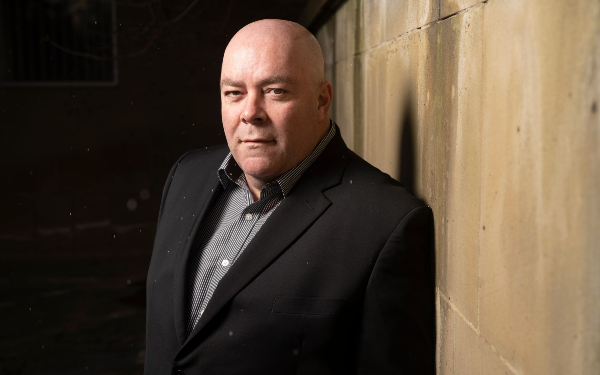
Councils across England face insolvency without national rules to regulate mounting care placement costs, the Association of Directors of Children’s Services’ (ADCS) president has warned.
John Pearce told Community Care that these should include a calculated fair cost for care and rules on provider behaviour, in an interview at this year’s National Children and Adult Services Conference (NCASC).
Though he said the idea had not yet gained traction with the Department for Education, children’s minister David Johnston subsequently told NCASC that the DfE may be open to the idea.
Pearce’s comments came on the day that Nottingham council declared that it would not be able to set a balanced budget this year, citing children’s social care demand and costs as a cause.
At the same time, the Local Government Association released research showing authorities as a whole were on course to exceed their approximately £4.7bn care placement budgets by £680m (14%), following a similar overspend last year.
The association’s report, based on a survey of 124 of the 153 councils, also showed the proportion of placements costing £10,000 a week or more rose from 0.2% of the total in 2018-19 to 1.6% in 2022-23.
Factors driving placement costs
The situation is the result of councils lacking sufficient placements of the right kind in the right places to meet children’s needs. This has been driven by factors including:
- Fifteen consecutive year-on-year rises in the care population.
- More and more children with complex needs going into care and requiring more intensive provision, such as solo placements, high staff ratios or, increasingly, deprivation of their liberty.
- Reductions in the numbers of secure children’s home and inpatient mental health beds, removing alternative options for these children.
- A fall in the number of mainstream fostering households.
- A mismatch between the location of children’s homes and areas of need.
Councils’ lack of choice over placements has pushed up prices, particularly for children’s homes.
While the number of registered places in homes rose by 11% from 2016-22 (source: Ofsted), council spending on private providers – who run the vast majority – grew by 105% over this period (source: Revolution Consulting).
Government response criticised
In response, the government has provided councils with £259m from 2022-25 to deliver more children’s home places and adopted proposals from the Independent Review of Children’s Social Care to test the creation of regional care co-operatives (RCC).
These would take over individual councils’ responsibilities for commissioning and providing placements, in order to pool expertise and planning capacity and give local government greater scope to dictate terms to providers.
However, the ADCS has warned that there is “no evidence” that RCCs would address pressures on the placement market, creating them would be “costly and time consuming” and they risked triggering a mass exist of providers.

John Pearce, ADCS president, 2023-24
In his speech to the NCASC yesterday, Pearce said there was no DfE plan to tackle the “unmanageable costs of children’s
social care homes”.
Risk of widespread council insolvency
Speaking later to Community Care, he said: “We’ve been very clear around our concerns about regional care co-operatives – but even if you set them aside, they are going to take five years [to set up] by which time no local authority in the country will be financially solvent.”
Those comments came as Nottingham council issued a section 114 notice, stating that it could not meet its legal obligation to deliver a balanced budget in 2023-24, with the volume and complexity of children’s social care packages a key driver.
As a result, it must cease new spending commitments and will need to come up with a plan to bring its budget into balance. This will likely involve further government intervention, to which it is already subject due to past financial problems.
Its action follows the issuing of section 114 notices by Birmingham council, in September 2023, Thurrock, in December 2022, Croydon, in November 2022 and Slough, in July 2021.
Need for national rules on care placements
Pearce said the DfE should follow the action it had taken in relation to agency social work by setting national rules to govern the market.
This should include open-book accounting – where providers seeking contracts show commissioners their costings and profit calculations – and the modelling of a fair cost of care, providing the basis for price caps.
He also said there should be rules around provider behaviour, citing the practice of services charging for empty beds in homes as one he would like to end. Pearce added:
We need to move away from the Wild West, where the providers can do what they want.”
He said that while the ADCS had put forward proposals along these lines to the DfE, “to date none of these have been taken forward”.
Minister holds open possibility of action
However, Johnston subsequently told the NCASC that the DfE was looking into what action it could take in relation to placement costs.
“We are very aware of the pressures that the cost of children’s social care are putting on you at the moment,” he said.
“We are looking at how the market operates, the extent to which profiteering is taking place and what we can do about that and looking at, at a minimum, what standards we can have in the market.”
He added: “I can’t give you lots of details now. I have a team who is looking at this issue and trying to find out exactly what is going on.
“We’ve all got our examples of very expensive placements and not bearing any relation to the cost of those placements. So watch this space as we know this is an area that needs our focus.”
Rising number of high-cost placements
In its report, the LGA said high-cost placements (over £10,000 a week) had become increasingly prevalent, with 91% of authorities saying they had at least one in 2022-23, up from 23% in 2018-19.
The key drivers of high-cost placements were a lack of choice of placement – cited by 98% of authorities – children exhibiting “challenging behaviours” (93%) and children having complex or significant mental health issues (92%).
On behalf of providers, the Children’s Home Association (CHA) said: “The operational costs for children’s residential care have increased at an unprecedented level over the last four years.
‘Multiple factors’ behind cost rise – provider body
“There are multiple factors that have impacted on the cost of providing children’s residential care as with all organisations. Inflation on supplies and salaries have been significant.
“Both the CHA and the LGA have made the government aware of the impact of the lack of sufficient funding in this sector.
“Unless this lack of funding is addressed it will not be possible to address the issues impacting both the cost, quality and availability of placements for children and young people in need of residential care.”
Children’s social care reforms
In its response to the LGA report, the DfE pointed to its children’s social care reform agenda, set out earlier this year in the Stable Homes, Built on Love paper.
“Our ambitious reforms to children’s social care will focus on more early support for families, reducing the need for crisis response at a later stage, with plans backed by £200m to test and refine our approach,” said a spokesperson.
“We are also investing £259m to support local authorities to create more placements for children in high-quality and safe homes.”




 Assistive technology and dementia: practice tips
Assistive technology and dementia: practice tips  A trauma-informed approach to social work: practice tips
A trauma-informed approach to social work: practice tips 




 Find out how to develop your emotional resilience with our free downloadable guide
Find out how to develop your emotional resilience with our free downloadable guide  Develop your social work career with Community Care’s Careers and Training Guide
Develop your social work career with Community Care’s Careers and Training Guide  ‘Dear Sajid Javid: please end the inappropriate detention of autistic people and those with learning disabilities’
‘Dear Sajid Javid: please end the inappropriate detention of autistic people and those with learning disabilities’ Ofsted calls for power to scrutinise children’s home groups
Ofsted calls for power to scrutinise children’s home groups Seven in eight commissioners paying below ‘minimum rate for home care’
Seven in eight commissioners paying below ‘minimum rate for home care’
 Facebook
Facebook X
X LinkedIn
LinkedIn Instagram
Instagram
The ‘contracting and procurement landscape’ as it’s called, for children’s services has been ‘out-of-control’ for decades; especially the ‘out-of-sight-out-of-mind’ OAP’s ~ s114 Officers were beside themselves in 2007.
This is a long-run issue. There are many perverse incentives at work which drive OAP’s, and what amounts to insider-dealing is just one.
If, as is claimed , market rules were to be applied properly ~ they aren’t ~ the primacy of children’s rights would have been weighed and reviewed by the Competition and Mergers Authority; the statutory entitlement and protections afforded children are impacted, and more directly than is comfortable, by the Unfair Terms and Conditions of Contract Law.
The cart is before the horse. Buisness interests and ROI before the child. Having hinted at a market response, risk escalation has become the besy way to make claims for higher-costs ~ it’s a sewn-in and systemic problem.
Open book approaches, while a great Idea, are outside the scope of any Authority enforcement ie it’s not permitted in Competition Law. More worrying though is the collusion between professionals, including advocates, to rig the Children’s Reviews to further the business interests of Providers interests ~ I was a s16 IRO and was often just simply gobsmacked at the ‘failing placement’ aggrogance used for claiming higher-costs ‘or else’ highground ~ and shocked by the inducements made to the children to behave a certain way at or in anticipation for the Review.
It’s a ‘buyer beware’ market. Once an Authority commits is serious hard to get-out.
The Child simply gets lost.
There’s now sufficient intelligence, and from those with commerce interests, for Council’s to finally make up their minds about OAPs.
The s114 Officers have, and not before time, called time.
Council’s, though, must also demonstrate that they aren’t simply using children for their own political purpose, as legitimate as it maybe ~ if s114 Officers have known about this problem for an age then the Council as a whole as too. Where, and it’s a huge democratic deficit if so, they have not been involved questions must be asked about this too.
‘Out-of-sight-out-of-mind’ services are the basis for market entry, rivalry and collusion, is this good enough?
*In 2007 I was 1of3 people looking specifically at contracting and procurement of Children’s services. And, while asked to do so by the Authorities had to resort to the FOIA to anywhere near the information. Staff both social work and contract officer too scared to talk ~ those who did quickly reminded of the consequence of whistle blowing ~ it’s rough terrain*
Thanks Alex. You have a far more sophisticated understanding of this area than I do. My recurrent concern as a Mental Health SW who was worked lots of adults and a few children, is the costs paid to unregulated providers, whether adults or children. More so children as they were approaching 18 years old who, where needs had been complex, or perhaps more accurately emotionally evocative to those involved…often with a vagueness to the provision other than “managing risk”.For a long time I have felt local authorities commissioning high quality directly provided provision was the way to set the market. Yes not cheap, but if we are part of the market, LAs can then at least set the costs more robustly in the “market”. I fail to see the current systems working that well for children nor adults.
Agree, Shaun. Although, the trajectory is the reverse of this – check out Camilla Cavendish’s coverage of the issues in the FT ~ she’s a talented journalist and avid children’s campaigner.
That her coverage of the issues in the FT was all but in name an Initial Public Offering sets the tone of the real flexibility tobe afforded in the just announced Procurement Act 2023.
Buutzorg, is the latest thing in developing TEAL services right across ALL services ~ maybe the advantageous of trauma informed approaches for both children and adults will tend towards joint Local Authority collaboration within the new ICB area’s?
btw I spent years working in adult mental health, then drugs and alcohol before children and families, with a stop-off, in Youth Justice on the way. My time spent in the high security psychiatric estate prompting the shift towards child protection and family support.
Stay with it, Shaun. Our society is in a major and massive transition, post Brexit being only one factor. Councils, in my view, must now reestablish themselves as Local Authorities in a very literal way ~ Social Work is, as intended, pivotal to that this.
The LGA has said the average cost of OAPs is £350,000 per year; the numbers rising from 120 in 2018/19 to 1500+ in 2022/23.
Bradford Council Children Services Scrutiny Board is demanding greater scrutiny of the providers and their costings ~ why they don’t already know beggars belief ~ s114 Officers are required by law to take personal responsibility for the decisions made. I know that in 2007 they were gobsmacked, as were their counterparts the s151 Officers, by how spend decisions were actually made.
The CMA has said that the industry has been sleep walking into this mess. For sure, it’s all easily politised, and for sure, one could check out the political lineage of each Council’s spending decisions but unlike the s114 Officers the decisions made, and signed-off by registered social worker’s and their senior managers, don’t carry the onus placed on their colleagues the beleaguered s114 Officers ~ what are the ethical issues here?
I was surprised to read, in the Telegraph and Argos, that it’s the Conservative Group for Bradford Council and not the Labour Group who are arguing for an invest to save Children’s Strategy suggesting that a £400,000 capital spend developing local facilities is an option.
The narratives for social work are usually, and today wholly, created outside any connection with the local ~ is, I wondered, the propensity for generalised assumptions about professional worth and who’s getting the next training contract award, now, ‘a product’ of sleep walking too?
For Information:
See Keeping the Powder Dry ~ a story of the £4tn spend just waiting to happen, and which general practice will find ways to spend ~ be aware of your patient codings as what you say will be captured by a LLM and used to generate the digital pull towards charging as ROI
https://www.ft.com/content/cb161f56-de60-4a4d-bdf9-b0b3e0e62174
btw the term GP in the article means General Partner as opposed to Limited Partners and is the jargon of Equity Partnerships ~ that general practice in primary care is an outlet for such funding remains true.
More information about the use of Private Equity in general practice.
http://www.ft.com/content/94184d66-517b-4893-8e06efd135b3
Is the FT running unofficial Initial Public Offering adverts to attract the slush money from the $4tn equity funds dry power by covering social issues ~ and why, Dear Ed of CC, do I have to read the FT to stay abreast of the issues?